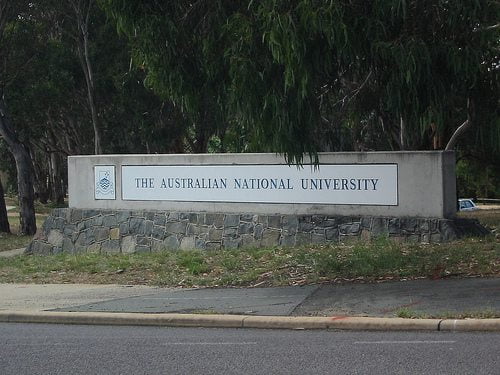

Energy
CAER stands by ANU fossil fuel divestment advice
Responsible investment advisory CAER has stood by its analysis that persuaded Australia National University (ANU) to divest from fossil fuels, after the government labeled the decision “stupid”.
Blue & Green Tomorrow is currently running a crowdfunder to ensure its survival. Please pledge.
ANU became the first Australian university to commit to divesting its portfolio from fossil fuel firms earlier this month, after receiving a report from its advisor partner CAER.
The controversial report ranked the ANU share portfolio using a range of environmental, social and governance indicators, prompting the university to ditch its holdings in seven companies.
But after protests from the affected companies and Australian government ministers, CAER has moved to defend its analysis.
“We categorically stand by the quality of our research process,” chief executive Duncan Paterson told Guardian Australia, after one affected firm said it was confident the report would be amended.
“There are no inaccuracies in our report, we have given no assurances to any company that their results will change. We will continue to talk to the companies we cover but I am aware of no instances where our advice has been based on false information.”
The divestment decision means ANU will divest $16 million (£8.7m) from firms including Santos, Newcrest Mining, Iluka Resources and Sandfire Resources.
Prime minister Tony Abbott called the university “stupid” while ministers claimed the move would threaten Australia’s energy security, but Paterson insisted the paper was based on solid research.
“It is not our responsibility to consult companies over a client’s decision to divest from them, we don’t provide divestment advice, we provide information upon which clients make those decisions,” he added.
Despite the Australian government’s scorn, the fossil fuel divesment movement – which began in the US – is gaining traction around the world.
The movement principally urges investors to ditch fossil fuel firms because of the massive environmental impact they have.
The Intergovernmental Panel on Climate Change’s (IPCC) most recent report concluded that carbon-intensive energy production was the single biggest contributor to global warming. And yet, energy companies continue to search for new fossil fuels reserves, despite warnings from the IPCC that 80% of the reserves companies have already claimed must never be burnt.
Campaigners have also sought to make shareholders aware of the financial case for divestment.
Some experts say that if policies are introduced to ensure that the majority of fossil fuel reserves stay buried, the assets of fossil fuel firms would be severely devalued – leaving them as ‘stranded assets’.
Recent analysis by the thinktank Carbon Tracker warned that as much as $1.1 trillion (£650 billion) of investors’ money is currently at risk as a result.
Following commitments made at climate talks in New York last month, a number of high profile investors have signed up to divestment. Last week, Glasgow University became the first European university to join the movement.
Photo: Stephen Dann via Flickr
Further reading:
Australian National University divests from fossil fuels amid government criticism
Australian National University to take sustainable investment advice from CAER
Örebro becomes first Swedish city to divest from fossil fuels
Glasgow University to divest from fossil fuels
University of Oxford academics demand fossil fuel divestment


 Environment12 months ago
Environment12 months agoAre Polymer Banknotes: an Eco-Friendly Trend or a Groundswell?

 Features11 months ago
Features11 months agoEco-Friendly Cryptocurrencies: Sustainable Investment Choices

 Features12 months ago
Features12 months agoEco-Friendly Crypto Traders Must Find the Right Exchange

 Energy11 months ago
Energy11 months agoThe Growing Role of Solar Panels in Ireland’s Energy Future






























